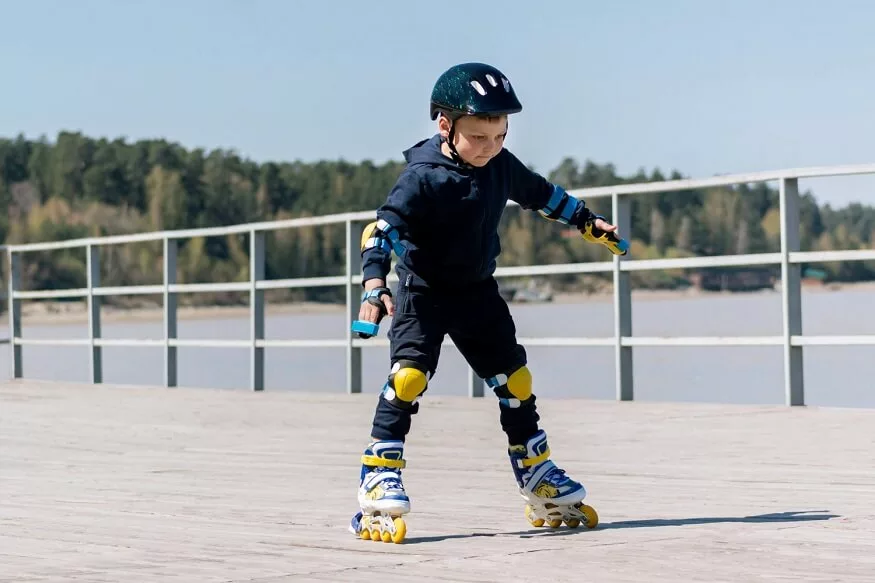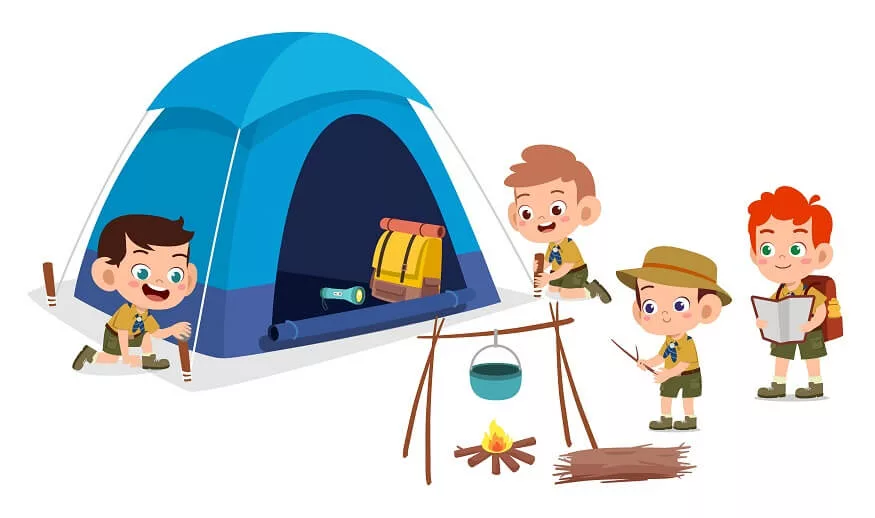Skating is an exciting activity loved by people of all ages, offering much more than just thrills. Whether on wheels or blades, it is not just a sport but a way to stay fit, mentally sharp, and socially engaged. From the smooth glide to the rush of excitement, skating combines fun with growth.
In this blog, we will explore reasons why skating is good for your child’s overall well-being and development.
Also Read: Conditioning Drills for Basketball Players
- Physical Benefits of Skating
- Mental Benefits of Skating
- Social Benefits of Skating
Skating boosts the heart rate and blood flow, enhancing heart and lung strength in kids and lowering the chances of heart-related issues later on. It works out various muscles like the core, legs, and glutes, offering a great way to tone muscles and improve stamina early in life.
A study by Harvard Health Publications found that a person weighing 70 kg can burn up to 400 calories in 30 minutes of moderate skating.
Being a low-impact sport, skating has less impact on joints, unlike other high-impact sports like running. This makes it an excellent choice for children who may have joint problems or are overweight.
Skating is a great sport for improving agility in kids. When practised regularly, it helps improve their motor skills, balance, coordination and posture. Kids learn to move swiftly and accurately in different directions. This improved agility can help them in other sports and activities as well as in everyday life.
The Canadian Mental Health Association states that any physical activity can ease anxiety and depression, uplift mood, and enhance cognitive abilities. Skating is no exception.
Skating requires concentration and focus, which helps improve mental clarity and memory. When practised regularly, skating teaches children to keep trying and never give up. Taking risks and challenging themselves helps children build confidence and self-esteem. They discover the value of setting goals and working towards achieving them.These skills are essential for them in their personal and professional life and relationships.
Also Read: Badminton Vs. Tennis: Similarities and Differences
Skating lets kids have fun with friends and family. It helps them forge new friendships, which is vital for their emotional health.
Skating rinks offer team-based activities, which provide children with a sense of community. Skating encourages kids to interact with each other, develop relationships and collaborate during activities and practice sessions.
Skating also presents an opportunity for parents to bond with their children. A day at the skating rink can be a fun family activity. Skating also teaches children important life skills such as teamwork, respectful communication, leadership and sportsmanship. Learning skating encourages children to experiment and develop their style of skating. This helps them express themselves in fun and creative ways.
Also Read: 5 Benefits of Early Swimming
Keeping your kids safe
Enrolling your child into a skating class is a gift of lifelong lessons, along with fun, and fitness. However, it is important to keep their safety in mind while learning to skate. Here are some safety tips your child may require when skating:
- Protective gear: Skating involves potential hazards such as falls, collisions, and injuries. Hence the number one rule of skating is to wear age-appropriate protective gear. Ensure that your child wears protective gear such as knee and elbow pads, helmets, gloves, mouth guards and wrist guards. Ensure that your child’s skates fit snugly and are in good condition. It would help to wear padded shorts to protect against tailbone injuries in case of a fall backwards.
- Follow rules: Skating rinks usually have rules and regulations that skaters must follow. Make sure your child follows them to avoid accidents.
- Time and place: It is always advisable to skate during daylight hours. Never skate during heavy rains or snowfall to avoid slippery surfaces. Choose spaces that are open, away from high-traffic areas and free from hazardous obstacles such as rocks, cracks, sticks, logs, etc.
- Ensure adult supervision: Kids between 6-10 years of age will require close supervision from an adult, either a coach or a parent when they are skating.
Also Read: How to Play Badminton: Step By Step Guide
Skating presents an array of benefits for children. Physical benefits include cardiovascular exercise, muscle toning, and burning calories. Mentally, it improves memory, concentration, and mental clarity. Skating allows children to socialize and make new friends. However, safety is important when it comes to skating. Wearing protective gear and following the rules and regulations of the skating rink becomes important. Encouraging your child to take up skating can provide both physical and mental health benefits while fostering socialization.
At EuroSchool, we provide the “Balanced Schooling” approach to strike the right balance between academics and extracurricular activities. We encourage children to learn skills through sports to foster a learning space where there is all-around development for every child.










